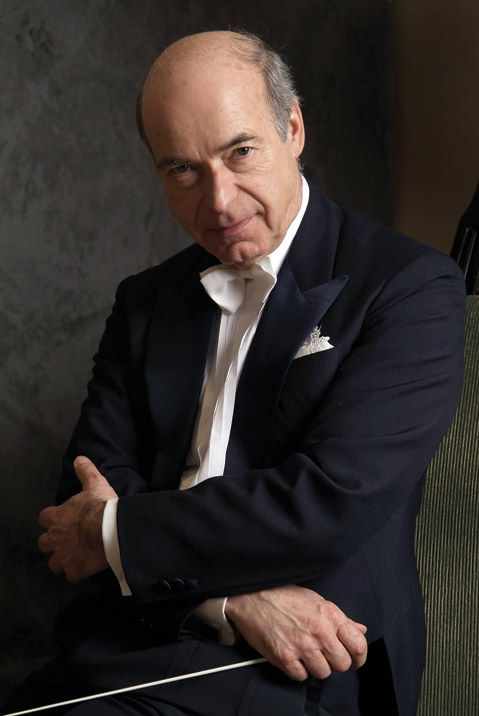Matthias Bamert Presents Mozart in Context
S.B. Symphony Takes On an All-Mozart Program
How can you deepen your understanding of a great composer’s work? Some musicians study his life, his letters, or his society, hoping an accumulation of obscure facts will illuminate his intentions. Others prefer close analysis of the works themselves.
Although it wasn’t by design, conductor Matthias Bamert took an alternative approach to unlocking the mysteries of Mozart. He cultivated his insights by becoming acquainted with music written by the peerless composer’s colleagues and contemporaries.
“I do think I understand Mozart better, now that I know in what context he worked,” he said in an interview from his London home.
Bamert, 71, will conduct an all-Mozart program this weekend with the Santa Barbara Symphony at the Granada, but he is best known for a series of recordings he made with the London Mozart Players of music by relatively obscure composers of Mozart’s era.

Once you’ve studied the symphonies of Hoffmeister, Vanhal, and Vogler, you get a good sense of the norms of the period — and the way Mozart gleefully broke them.
A native of Switzerland, Bamert made his acquaintance with Mozart early in life. “As in every intellectual, bourgeois Swiss family, everybody had to play an instrument,” he said. “I tried the violin and piano before [settling] on the oboe. That was the one I played the least badly.”
Clearly, he didn’t play badly at all: Early in his career, Bamert was the principal oboist with the Salzburg Mozart Orchestra. “I always wanted to be a composer and a conductor,” he explained. “Since I had a facility with the oboe, I thought I would join an orchestra and learn the repertoire from a musician’s point of view.”
He made the leap to the podium thanks to a chance encounter with the legendary music director of the Cleveland Orchestra, George Szell. Szell spent summers in Austria, working with the Vienna Philharmonic; Bamert attended one of his rehearsals and, to his surprise, found himself chatting with the famously imperious conductor.
“I told him I composed, and he said, ‘Tomorrow, you bring me a composition.’ So I did. Of course, being George Szell, he looked at it and, a split second later, said, ‘This needs to be in F-sharp.’ He was intimidating, but we had a good conversation, and he said, ‘Come back next year.’ The next year, he returned to Vienna, and I talked to him again. He remembered every word we had exchanged the year before. Then he said, ‘You can come to Cleveland if you want to, but we can’t pay you.’ I had an American girlfriend, who told me there were foundations that would pay for such a trip — she is still my wife, by the way! I applied to the Ford Foundation, and I got the grant.”
After a year working as an assistant to Szell, Bamert moved to New York to assume a similar role with another legend, Leopold Stokowski. He eventually returned to Europe and today makes his home in London, where he has developed a reputation for insightful interpretations of both modern music and Mozart.
“His contemporaries usually wrote very beautiful melodies and accompaniment,” Bamert said. “But with Mozart, the music is so much more complicated! In the last movement of the Jupiter Symphony (No. 41) you have seven melodies, and each one is, at the same time, the harmony and the accompaniment [for the others]. I think that complexity is a reason he was less successful than others in Vienna.”
There were “too many notes,” as his royal patron complains in the movie Amadeus.
“Yes,” Bamert said. “But you realize there is a big difference between Peter Shaffer’s play and the film. I consider the play fantastic, but the film painted a picture of Mozart that was wrong in many ways. It acts like it’s a biography, which is not what Peter Shaffer was trying to do. Mozart was not a giggly, silly little boy! There was much more to him. The music tells you everything.”
4•1•1
Matthias Bamert conducts the Santa Barbara Symphony in an all-Mozart program, at the Granada Theatre (1214 State St.) on Saturday, November 23, at 8 p.m. and Sunday, November 24, at 3 p.m. Call (805) 898-9386 or visit thesymphony.org for tickets and info.



